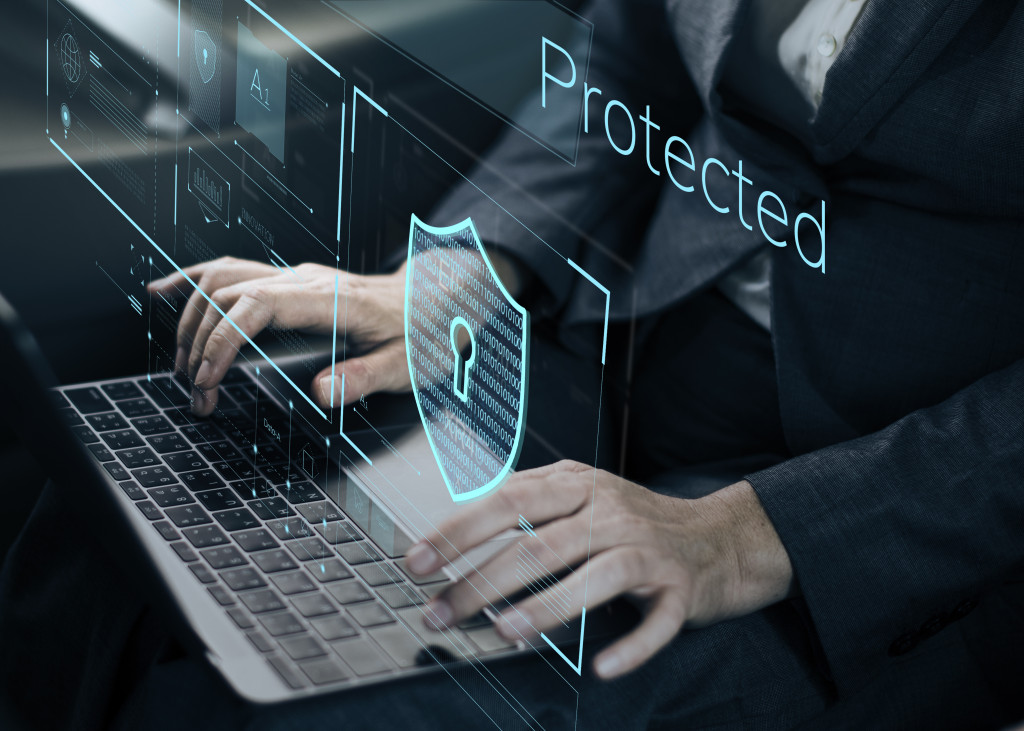- Companies must proactively protect their systems, networks, and data from cybercrime and breaches.
- Cybersecurity is an essential component of any business’ internal security system.
- Other internal security protocols include secure data storage and access control using robust authentication methods.
- Having an effective internal security system in place can help minimize potential threats while providing customers with the assurance that their data is safe and protected from malicious actors.
Internal security is a critical issue for businesses of all sizes. In today’s digital-oriented world, the risk of cybercrime and data breaches has grown exponentially, and the consequences can be costly not only in terms of money but also in terms of reputation. Companies must proactively protect their systems, data, networks, and employees from malicious actors.
With an effective internal security system, businesses can protect themselves from theft or misuse of confidential information and other cyber threats. This involves implementing policies and procedures to:
- Prevent unauthorized access to computers, networks, and data files
- Deploy firewalls to restrict access to certain areas or resources
- Conduct regular audits for any suspicious activities, and provide staff with security training to recognize potential risks and make informed decisions about how to respond.
Research shows that the cost of a data breach can reach as high as $4.24 million for companies with fewer than 500 employees. Furthermore, studies suggest that 60 percent of small businesses leave within six months of experiencing a significant attack or breach. In addition to financial losses, organizations also suffer reputational damage as customers may lose trust in their ability to protect their personal information.
As a result, internal security becomes vital for any organization. Here are a few tips to help you.
Cybersecurity
The protection of confidential information and systems is not only important in terms of financial costs; it also has implications for reputation and customer trust. Poor cybersecurity practices can lead to significant reputational damage when customers lose faith in the company’s ability to secure their data effectively. This can have long-term consequences on the success of any business since customers are more likely to choose organizations they trust over those where they feel their information is at risk.
Businesses must take proactive steps to protect themselves from cyberattacks by implementing solid internal security systems and policies. This includes deploying firewalls to restrict access to certain areas or resources and conducting regular audits for any suspicious activities
Providing staff with security training to recognize potential risks and make informed decisions about how to respond is also essential, as well as ensuring that all passwords are regularly changed or updated as needed. Additionally, businesses should consider investing in third-party cybersecurity solutions such as malware scanners and antivirus software, which can provide additional protection against cyber threats.
Strong Security Protocols

Businesses will always be vulnerable to external security risks, but they can minimize the potential impact of these threats by having strong internal security protocols in place. Companies should have a written policy outlining the acceptable use of their systems and networks and procedures for dealing with unauthorized access or breaches. Here are a few of those systems that need attention:
Secure Data Storage
Storing customer data securely is essential to protecting it from malicious actors. Companies should ensure that customer information is encrypted and stored in a secure environment, such as on a password-protected server or cloud storage system.
Access Control
Controlling and monitoring who has access to the company’s systems and data can help prevent unauthorized access, tampering, or theft of confidential information. Establishing robust authentication methods such as multi-factor authentication (MFA) and using access control protocols can help protect against potential intruders.
Network Security
Networks are vulnerable to outside attacks, so businesses must protect them from malicious activity, such as hackers attempting to gain access or spread malware across the system. Installing firewalls and regularly auditing the system for potential threats can help businesses keep their networks secure.
Regular Testing and Auditing
It’s essential to regularly test the security protocols in place to ensure that they are functioning correctly and conduct audits regularly to identify any potential weaknesses or risks. An effective vulnerability management program can help businesses quickly respond to any new threats or vulnerabilities before they become serious issues.
Legal Services

In the event of a data breach or cyberattack, it’s crucial to have legal services on hand to help with any potential legal issues or questions that may arise. Working with an experienced law firm can provide guidance and advice on handling a security incident and any other related matters.
However, you might want to get external private bailiff services if you need to serve papers or documents related to legal matters. Some situations might require you to use reliable private bailiff services for more efficient and secured delivery.
Final Thoughts
Implementing an effective internal security system is essential for any business in today’s digital world. Having a plan and protocols in place can help protect against potential threats while providing customers with the assurance that their data is safe. As cybercrime continues, businesses must take proactive steps to ensure their systems are secure and protected from malicious actors. With the proper measures in place, companies can minimize the risk of data breaches or other cyber-related incidents and protect themselves from costly financial and reputational losses.